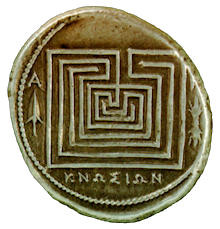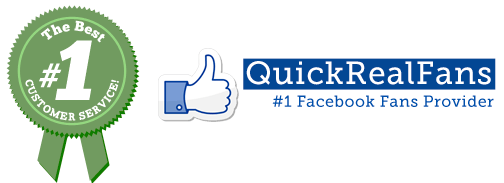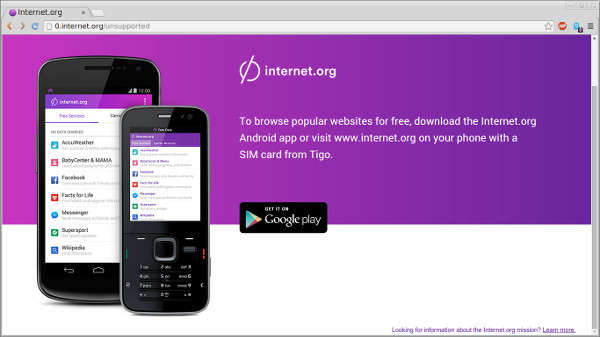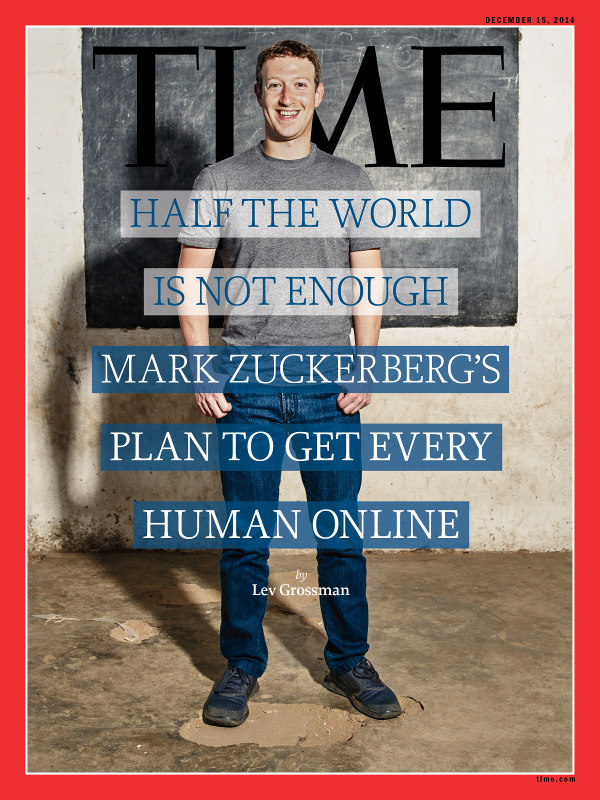“The secret of freedom lies in educating people, whereas the secret of tyranny is in keeping them ignorant.”
– Maximilien de Robespierre (1758 – 1794)
The origins of modern Western Civilisation date back 2400 years to ancient Greece, where philosophers like Plato and Aristotle developed concepts of government. They formulated our ideas about “democracy” (rule by the people), “oligarchy” (rule by money)1, and “tyranny” – the arbitrary and oppressive exercise of power, unrestrained by rule or law. Characteristic features of a tyranny are a charismatic leader, the tyrant (dictator), at the top of a police-state which suppresses any opposition.
Can two check-marks change the way societies interact?
In October 2014, the millions of users of the Instant Messenger application “WhatsApp” discovered that a new feature appeared alongside their texts:
 These two blue ticks
These two blue ticks ![]() hadn’t been there before! On its website the company explained:
hadn’t been there before! On its website the company explained:
Check marks will appear next to each message you send. Here is what each one indicates:
 message successfully sent.
message successfully sent. message successfully delivered to the recipient’s phone.
message successfully delivered to the recipient’s phone. the recipient has read your message.
the recipient has read your message.
In a group chat, the second check marks will appear when all participants in the group have received your message. The two blue check marks will appear when all participants in the group have read your message.
This arbitrary change came 8 month after WhatsApp Inc. was bought-up by Facebook Inc..
“No excuse to ignore your Whatsapp messages!“
… titled a British tabloid and general reception was negative, “because what we need least in this world is MORE capability to stalk our companions!” But do we have a say?

 Limiting user choice to optimise profits
Limiting user choice to optimise profits
It might not be in the public interest, but since the incredible sum of US$19 billion was invested to take and turn WhatsApp’s users into marketing targets, Facebook needs to monetise all information it can accumulate. Their offer will be personalised advertisements according to user-profiles – and the two blue ticks will serve as proof of delivery!
One might also wonder, why this feature can’t be optional? Why can’t the user decide; where is the ‘preferences control panel’ which allows to disable/enable particular functions?
This freedom has been traded-off for free-use:
“When an online service is free, you’re not the customer. You’re the product.” – Tim Cook, CEO of Apple Inc..
The Domestication of Personal Computing
“Domestication is the cultivating or taming of a population of organisms in order to accentuate traits [features] that are desirable to the cultivator or tamer.” (Wikipedia)
Most people believe a smartphone is just a handy “Personal Computer”. But this would mean to mistake a domesticated ox for a wild African buffalo:
 In fact the ox is the domesticated buffalo, with its features “reprogrammed” to serve the interest of its “developer”. Therewith the ox has also lost the capability to survive in an open space like the Serengeti – it requires a “protected environment”.
In fact the ox is the domesticated buffalo, with its features “reprogrammed” to serve the interest of its “developer”. Therewith the ox has also lost the capability to survive in an open space like the Serengeti – it requires a “protected environment”.
Likewise the classic PC was designed as self-contained, multi-purpose system, open to run any kind of applications, from any source. A “smart” computer though, depends on “cloud-services”, requires a complementary environment of remote computers. Just try to print from an Android device without network-connection to Google! To fully match our analogy with the grim reality, this complementary equipment – the wooden yoke and cart – would be protected by “intellectual property rights” to prevent any alternative development. For details please refer to our former article: Arrested Development.
To fully match our analogy with the grim reality, this complementary equipment – the wooden yoke and cart – would be protected by “intellectual property rights” to prevent any alternative development. For details please refer to our former article: Arrested Development.
Trapped inside Facebook’s computed labyrinth
 Historically a Labyrinth is a building so clever constructed, that nobody who enters can ever find the way out again. This silver coin depicting the labyrinth dates back to Greece in 400 BC. According to Greek mythology it was invented to keep a terrible monster inside.
Historically a Labyrinth is a building so clever constructed, that nobody who enters can ever find the way out again. This silver coin depicting the labyrinth dates back to Greece in 400 BC. According to Greek mythology it was invented to keep a terrible monster inside.
Today its you – to be kept infinitely on Facebook.com.
A labyrinth-like obscure complexity has become the standard design-pattern for most “free” online-services. The simple user will not become aware, that he/she is lead around on short leash inside a cunningly arranged environment, optimised for supervising and patronising an immature child.
 Evidence about Facebook’s secret user-experiments
Evidence about Facebook’s secret user-experiments
1. Facebook Gets Results? 2010 Vote Experiment Worked, Scientists Say
“If we want to make the world a better place on a massive scale, we should focus not just on changing a person’s behavior, but also on utilizing the network to influence that person’s friends,” – Fowler, chief reseacher University of California
So “making the world a better place” means to manipulate elections? Fowler also said, that “the next step in testing the power of online social networks to trigger large-scale changes in social behavior is to see what types of messages are the most effective”:
2. Facebook’s mood study: how you became the guinea pig.
As a next step, the corporation wanted to know how people can be influenced by “positive” or “negative” messages – whether societies can be driven into a certain direction like cattle. Yes, it works, and best results are archived on the sub-rational, emotional level.
3. Facebook fiasco: was Cornell’s study of ‘emotional contagion’ an ethics breach?
“Ethics breach” is a very mild circumscription for Facebook deliberately filtering user-messages, letting only pass the good news for some hundred thousand users – or reversely the bad news for the control-group. Who can be sure that this will never happen again?
4. Facebook’s advertising business model: Likes or Lies?

Let your money talk and buy your Facebook-Fans. Read how: Buying likes and rigging votes. Back in 2012 Facebook admitted that at least 83 million profiles on their site are fake – but they are not removed but in use to sell fake popularity.
A computer-freak as CEO
Facebook’s CEO Zuckerberg dismisses any criticism: “A frustration I have is that a lot of people increasingly seem to equate an advertising business model with somehow being out of alignment with your customers.”
Has there been any dictator throughout history, who didn’t claim to be in alignment with his people? Maybe for this reason figures like Bill Gates and Mark Zuckerberg are put in front of these multinational corporations, with their boring nerd image they instil less fear than a figure like Saddam Hussein, Muammar Gaddafi, or Adolf Hitler – who are imprinted into Western collective memory as the role-model of an absolute, oppressive leader, not committed the rule of law – the tyrant.
Private tyrannies superimposed on democratic societies
If you go to the website of the Tanzanian Head of State, you are offered 3 telephone-, 3 fax-numbers and 1 e-mail address to get in touch. By contrast presents no such lead. Facebook’s government prefers to stay unreachable, unanswerable to the 1.35 billion users it claims “to serve”.
A corporation is a form of private tyranny. Its directors have a responsibility to increase profit and market share, not to do good works. If they fail that responsibility, they will be removed. They have some latitude for public relations purposes, and the talk about corporate responsibility falls within that territory. But it makes no sense to regard them as benevolent institutions, freed from their institutional role. It is a public responsibility to enforce decent behavior. – Noam Chomsky debating online with Washington Post readers, May 16, 2000,
A system which rules rather than serves2
Facebook’s artificial “global community” is a power which seeks no base in the (Tanzanian) society. It is answerable instead to the financial markets and the mammoth business undertakings that are its masters. The result is that the real states in the real world are becoming societies with less power base.
A new tyranny is thus born, invisible and often virtual, which unilaterally and relentlessly imposes its own laws and rules.
— Pope Francis’ apostolic exhortation of 28/11/2013
“Making the world a better place”.
Western altruism (selflessness, charity) – especially in regard with colonising Africa – deserves a chapter of its own; read more here: The White Man’s Burden.
Let’s follow the money-trail here instead. Apparently the Internet can be used as an imperial tool to exercise influence and power. But by design the Internet is a free, open tool without power-centre – which is just going to change! How exactly we describe here: Making the Internet become a pyramid scheme.
To exercise control, the Internet needs to become centralised and monopolised – by destroying any competition:
Time magazine dedicates its feature-story of 15/12/2014 to the digital world-domination plans of a harmless computer-geek. Its author Lev Grossman writes about “Mark Zuckerberg’s Crusade to Put Every Single Human Being Online“. As far as I know, the victims of the seven major Crusades and numerous minor ones between 1096 and 1291 didn’t appreciate to be the target of these holy campaigns at all!
“Here’s the idea. First, you look at a particular geographical region that’s underserved, Internet-wise, and figure out what content might be compelling enough to lure its inhabitants online. Then you gather that content up, make sure it’s in the right language and wrap it up in a slick app. Then you go to the local cell-phone providers and convince as many of them as possible that they should offer the content in your app for free, with no data charges. There you go: anybody who has a data-capable phone has Internet access—or at least access to a curated, walled sliver of the Internet—for free.” [emphasis added]
Technically this “slick app” connects to the address www.internet.org, hosted on a Facebook-server. Since “Internet.org [was] launched in Tanzania in October”3, let’s go there with my notebook:
 Obviously “internet.org” is a double-deception:
Obviously “internet.org” is a double-deception:
- Neither it represents the internet, but stands for “a curated, walled sliver” of it. Moreover access requires a tiGO subscription and a Android phone;
- Nor does it deserve the ending “.org”, indicating a “non-profit making organization”; as without fulfilling preconditions, especially investing money, even the “underserved” Tanzanian “inhabitants” can’t use it.
Eventually even author Lev Grossman feels, he might have over-sugared his piece of marketing; he writes:
“Colonialism 2.0
There’s another way to look at what Facebook is doing here, which is that however much the company spins it as altruistic, this campaign is really an act of self–serving techno-colonialism.”
We can’t agree more, as we described the mechanisms of “Colonisation 2.0” already here: Colonisation through privatisation.
Who pays the bill?
We also already documented, that in the stronghold of free capitalism the cost of IT-development are usually imposed on the tax-payer. But if the government wants to keep subsidies off-the-record, there are the classified budgets of “National Security”.
There are sufficient online-sources4 to presume, that Facebook, as well as Google, eBay, PayPal are in fact CIA-projects. A project to connect every person on the planet to an U.S.-controlled network makes most sense for the 17 Agencies of the US Intelligence Community.
The global digital police-state (tyranny) in the making
With an estimated budget of $75 billion (2012) at their disposal, one of their projects is the global profiling of people. “Profiling” in general serves to find the right people for the right purpose – be it for remotely killing ‘terrorist’ by drone-strikes, for election-manipulation (“making the world a better place”) or triggering a remote-controlled regime-change by influencing public opinion to ignite a “Colored Revolution“. Read more about the US-concept of total digital domination in our recent post: “We need to own the net”.
To disguise the source of funding, the CIA uses patsies like Mark Zuckerberg. Him being just a puppet, is strongly supported by the fact that the Facebook of today became almost the opposite of Zuckerberg’s original concept – please refer to our former chapter: Facebook’s Eroding Privacy Policy – a case study.
Letting patsies become rich is also part of the free-market narrative, that in capitalism everybody can make it to the top – and eventually becomes a philanthropic do-gooder:
“Let’s make the Internet 100x more affordable” – Zuckerberg, 30/09/2013
The BBC reports, that “Facebook paid just £4,327 ($6,643) in corporation tax in 2014”. […] “It means Facebook’s UK corporation tax bill was less than the tax the average UK employee paid on their salary”, who paid “£5,392.80 in income tax and national insurance”.
Facebook’s “[t]otal profits for the year were $2.9bn, almost double its profit for 2013.”
At the end Zuckerberg makes his private mini-internet “more affordable”, by operating like a social outlaw: An OECD/G20 report found that laws allowing companies to shift profits to low-tax jurisdictions meant between $100bn and $240bn was lost in tax revenues every year – equivalent to between 4% and 10% of global corporate tax revenues.
Zero-rating: digital dumping economics
- Bad: If China or North Korea5 would promote free access to “a curated, walled sliver of the Internet” exclusively, Western media would cry foul about censorship, dirigisme and intervention.
- Good: The same regime exerted by US-corporations translates as “zero-rating” or “sponsored data”. The term “curated” adds an extra portion of hypocrisy to the spin, since it’s a religious term, related to the care or cure (cura) for souls.
The Chilean government has ruled that this practice violated net neutrality laws and had to end by June 1, 2014. Unfortunately so far only Chile, Netherlands and Brazil adopted such anti-dumping policies.
Of course it would foster Tanzanian ITC-business if their government would legislate net-neutrality. But one has to wonder whyever telephone companies like Airtel of tiGO would enter into a suicidal alliance with giant US-corporations behind Internet.org?
“Providing a bundle of [basic internet services] free of charge to users will work like a gateway drug of sort” – Zuckerberg, explaining why Internet.org requires WhatsApp.
In the end Tanzanian people will become addicted to the use of WhatApp chat and voice-calls (the code exists), do money-transfers with Facebook- or Google-Wallet, shop online for air-tickets, insurances, get credit – all provided by unaccountable off-shore companies, who will never be Tanzanian taxpayers. Airtel, tiGO, etc. will end up serving as mere data-carriers and network-maintainers for their supposed allies.
Enlighten the people generally, and tyranny […] will vanish like evil spirits at the dawn of day.
– Thomas Jefferson, 3rd President of the USA
Dar es Salaam, October 29th 2014. Today, Tigo announced that it is teaming up with Facebook to provide millions of Tanzanians with affordable Internet and free access to some basic online services through the Internet.org app.
The Internet.org app will be available on October 29, and Tigo subscribers will have access to:
- AccuWeather; owned by AccuWeather Enterprises, Inc. , USA; English language
- BabyCenter & MAMA;
- BBC News & BBC Swahili;
- BrighterMonday;
- The Citizen;
- Facebook;
- Facts for Life (a UNICEF Product);
- Girl Effect;
- Messenger;
- Mwananchi;
- Mwanaspoti;
- OLX;
- Shule Direct;
- SuperSport;
- Tanzania Today
- Wikipedia.
Meet In-Q-Tel, the CIA’s Venture Capital Firm – The Corbett Report
25 Cutting Edge Firms Funded By The CIA – Business Insider
Google, Facebook, eBay, PayPal – Evidence is mounting that these internet giants could be all CIA fronts

4 thoughts on “Digital Tyranny”
Comments are closed.